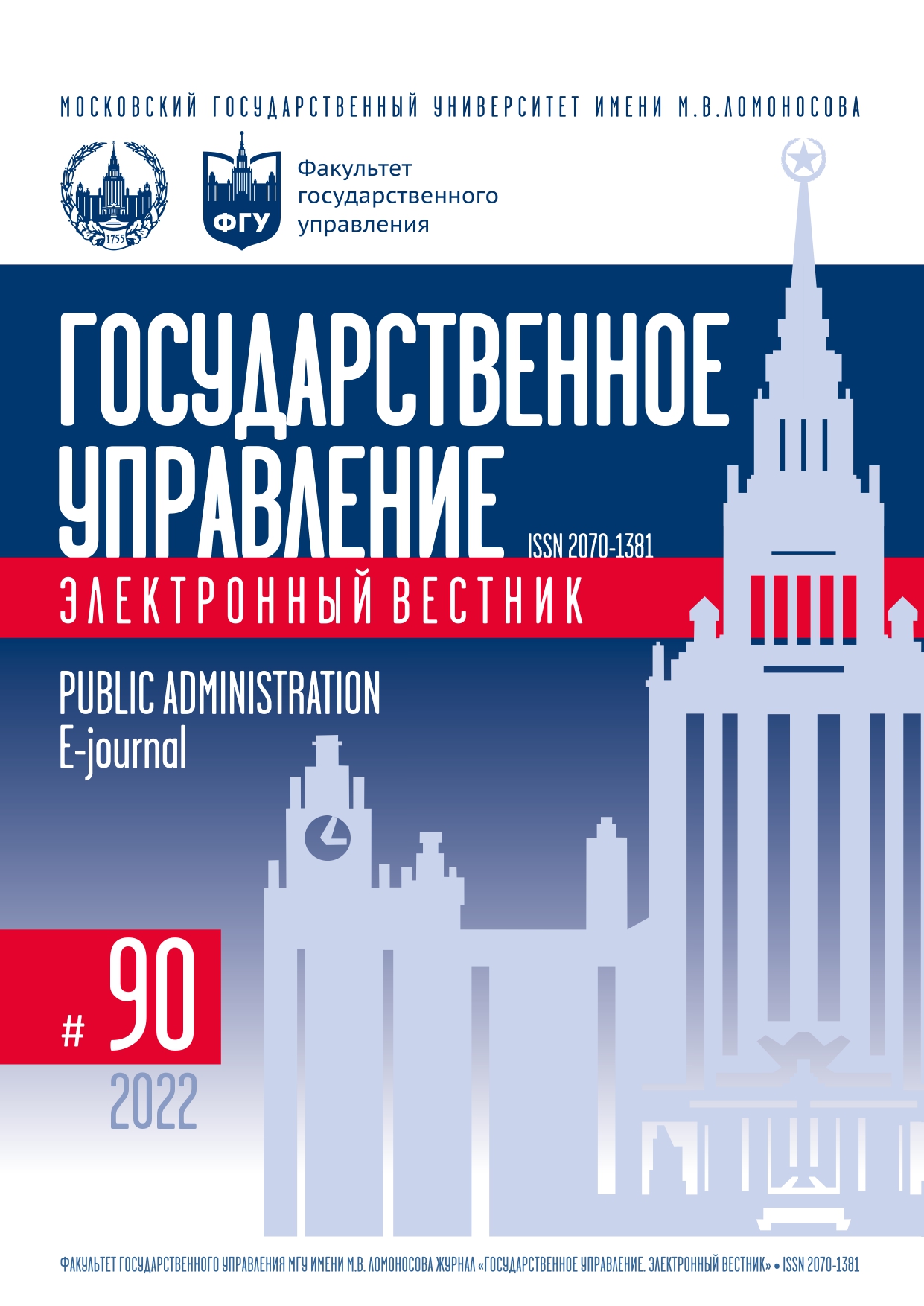Values of Civil Servants in the Republic of Kazakhstan in Their Representations
Keywords:
Consciousness, values, picture of the world, social group, professional group, civil servants, representationsAbstract
The article discusses the results of the study of the representations of civil servants in the Republic of Kazakhstan about the values of this professional group. The relevance of the research is determined by the role of values as the strongest internal motivators and regulators of the activities and behavior of civil servants as subjects of professional activity and life. The material for the analysis was the results of a survey on the most/least significant and unacceptable for civil servants of the Republic of Kazakhstan, which was attended by full-time employees of the Republic executive state authorities (n=64). Content analysis was used as a data processing tool. As a result of the analysis, the content and structure of the representations of the study participants about the values of civil servants in the Republic of Kazakhstan were revealed. It is shown that in the views of the study participants, the content of the values of civil servants of the Republic of Kazakhstan are the personal and activity characteristics of a civil servant as a subject of professional activity, the procedural and productive components of this activity, as well as factors external to professional activity that are more or less significant for a civil servant. It was found that in the respondents’ views, the most significant group and most significant personal values practically coincide, but at the same time there are differences in the degree of significance/value of a particular sphere of activity for the study participants as representatives of a professional group or as individuals. It has been revealed that the same value can be assessed as the most significant, insignificant and unacceptable, which fairly objectively describes the specifics of the organizational culture of the civil service in the Republic of Kazakhstan, reflects the process of respondents’ critical understanding of their professional activities and indicates the multidimensionality of their value picture of the world.
References
Грызунова Г.В. Трансформация ценностно-этических оснований государственной службы в России и Казахстане // Вестник Поволжского института управления. 2011. № 1. С. 18–25.
Калдыбаева О.В., Калдыбаев М.С. Традиции vs глобализация: ценностные ориентации населения современного Казахстана // Society and Security Insights. 2018. Т. 1. № 2. С. 113–138.
Леонтьев Д.А. Психология смысла: строение и динамика смысловой реальности. М.: Смысл, 1999.
Ростовская Т.К., Калиев Т.Б. Мир ценностей молодого поколения россиян и казахстанцев // Ценности и смыслы. 2018. № 1 (53). С. 78–89.
Синягин Ю.В., Селезнева Е.В. Взаимосвязь эффективности деятельности руководителей на государственной гражданской службе и их личностно-профессионального потенциала // Вопросы управления. 2016. № 4. С. 98–105.
Фаизова Д.Д., Малыгина П.А. Бюрократические ценности в управлении // Современная наука: проблемы, идеи, инновации: Материалы II Международной научнопрактической конференции (25 декабря 2020 г.). Казань: ИП Рагулин Р.А., ЧУДПО «НИОЦ», 2020. С. 92–95
Ценности и идеалы независимого Казахстана / Под общ. ред. З.К. Шаукеновой. Алматы: Институт философии, политологии и религиоведения КН МОН РК, 2015.
Шевченко В.Н. Российское государство и российская бюрократия: ретроспектива и перспектива // Бюрократия в современном мире: теория и реалии жизни / Отв. ред. В.Н. Шевченко. М.: ИФРАН, 2008. С. 101–149.
Rokeach M. The Nature of Human Values. New York: Free Press, 1973.
Schwartz S.H. Value Orientations: Measurement, Antecedents and Consequences across Nations // Measuring Attitudes Cross-Nationally: Lessons from the European Social Survey / ed. by R. Jowell, C. Roberts, R. Fitzgerald, G. Eva. Newbury Park: Sage Publications, Inc., 2007. P. 169–203. DOI: https://doi.org/10.4135/9781849209458.n9.
Vansteenkiste M., Neyrinck B., Niemiec Ch.P., Soenens B., De Witte H., Van den Broeck A. On the Relations among Work Value Orientations, Psychological Need Satisfaction and Job Outcomes: A Self-Determination Theory Approach // Journal of Occupational and Organizational Psychology. 2007. Is. 80. P. 251–277. DOI: https://doi.org/10.1348/096317906X111024.
Zapko-Willmes Al., Schwartz Sh.H., Richter Ju., Kandler Chr. Basic Value Orientations and Moral Foundations: Convergent or Discriminant Constructs? // Journal of Research in Personality. 2021. Vol. 92. P. 1095–7251. DOI: https://doi.org/10.1016/j.jrp.2021.104099.
Zokirova U. The Essence and Main Components of Value Orientations // Novateur Publications. 2020. Vol. 6. Is. 12. P. 301–303.

